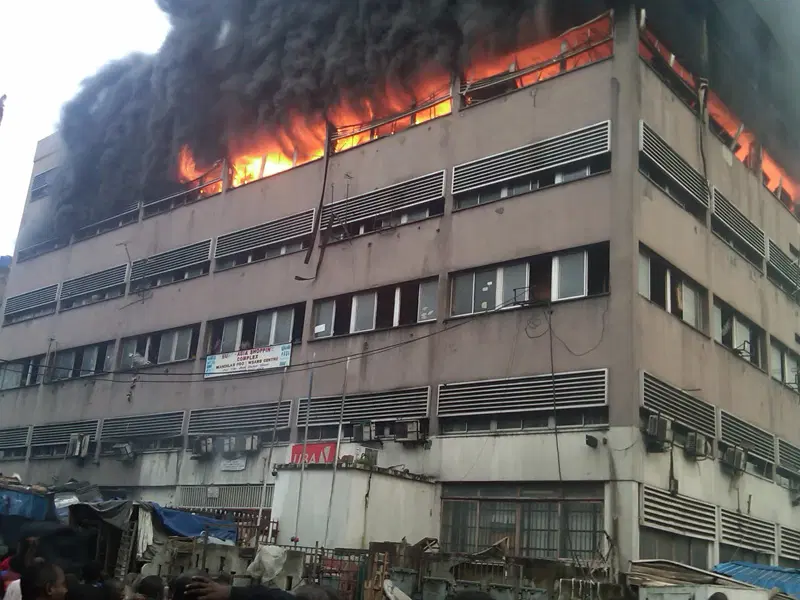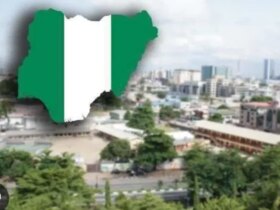From Tragedy to Triumph: Elumelu’s Leadership Lessons After Afriland Towers

By Bamidele Johnson
True leadership often reveals itself most clearly in moments of profound darkness-when clarity is lost, and only empathy, bravery, and decisive action remain. On September 16, a devastating fire broke out at Afriland Towers on Broad Street, Lagos, a key asset within Tony Elumelu‘s extensive business portfolio. This tragedy stripped away all superficial markers of status, exposing the raw essence of leadership. Billionaire entrepreneur and philanthropist Elumelu abruptly ended his overseas trip to return home, standing in solidarity with those affected by the loss.
His initial response was a heartfelt message blending grief with resolve. Eschewing corporate jargon, Elumelu spoke with genuine sorrow to the families, friends, and colleagues mourning the victims. He acknowledged the inadequacy of words to fully express the depth of the tragedy-whether for loved ones, close friends, or coworkers who shared daily ambitions. En route to the United Nations General Assembly in New York when he received the news, he immediately cut short his journey as a mark of respect. In his address, he called on his team to support the bereaved, comfort the injured, and honor those who lost their lives. He also requested a moment of silence across his companies, praying that such a disaster would never recur.
Even amid mourning, Elumelu paid tribute to the heroes who responded swiftly-the emergency personnel, medical responders, and everyday citizens who displayed remarkable courage. His words reinforced a principle he has long championed: that business exists to serve humanity.
The fire claimed approximately ten lives and caused extensive damage valued in the hundreds of millions of naira. For Elumelu, who chairs both UBA Plc and Heirs Holdings, this was more than a corporate crisis-it was a deeply personal test of leadership. He exemplified that true leadership is not about detachment but about standing resolutely in the eye of the storm. His response aligns with historic examples of leadership during crises worldwide.
Consider Alan Mulally’s tenure at Ford in 2006, when the company faced severe financial turmoil. Rather than resorting to harsh cuts, Mulally prioritized transparency and unity, demonstrating that resilience starts with people. Similarly, Satya Nadella’s 2014 leadership at Microsoft shifted the company culture from competition to empathy and collaboration, emphasizing that innovation must ultimately benefit humanity. More recently, during the COVID-19 pandemic, Arne Sorenson, then CEO of Marriott International, delivered an emotional message announcing layoffs while voluntarily reducing his own salary, signaling solidarity with employees facing uncertainty.
In the same vein, Elumelu’s empathetic response underscores that compassion is the most valuable currency in times of crisis. These leaders share a common philosophy: stakeholder-focused leadership that values employees, customers, and communities equally alongside shareholders. This approach fosters resilience and distinguishes enduring leaders.
Afriland Towers, a seven-story building housing UBA Plc, United Capital, the Federal Inland Revenue Service (FIRS), and other key organizations, became a scene of chaos that afternoon. The fire originated around 1:20 pm in the basement’s inverter room, producing thick smoke and intense heat that rapidly engulfed the structure. Staff were forced to escape by jumping from windows amid the panic, which severely hampered communication.
Afriland Properties, the building’s management company, confirmed that the Towers are equipped with safety measures such as alarms, emergency staircases, smoke extractors, fire reels, and extinguishers. Fire protocols were activated immediately, and first responders arrived within 20 minutes. However, some occupants reported not hearing alarms during the confusion, complicating evacuation efforts.
The company emphasized that the building complies with all regulatory safety standards and undergoes regular certification but acknowledged that the swift spread of smoke obstructed escape routes.
Afriland Properties was spun off from UBA Group, with Heirs Holdings as a significant investor. Both UBA and Afriland have long embedded safety drills and audits into their operational culture. Yet, no amount of preparation could mitigate the heartbreak caused by this disaster.
In response, Afriland Properties has committed to a comprehensive structural, safety, and regulatory assessment of the Towers before permitting reoccupation. The welfare of staff remains a top priority, with plans for medical check-ups, counseling services, and organized support during the mourning period. Long-term assistance programs are also being developed to ensure ongoing care for employees and their families.
The Afriland Towers fire was a tragic event that challenged both infrastructure and human spirit. It highlighted life’s fragility and the critical need for preparedness. Most importantly, it showcased a leadership style that transcends profit and hierarchy. Elumelu’s conduct demonstrated that in the darkest hours, authentic leadership is defined not by rank but by humanity.







